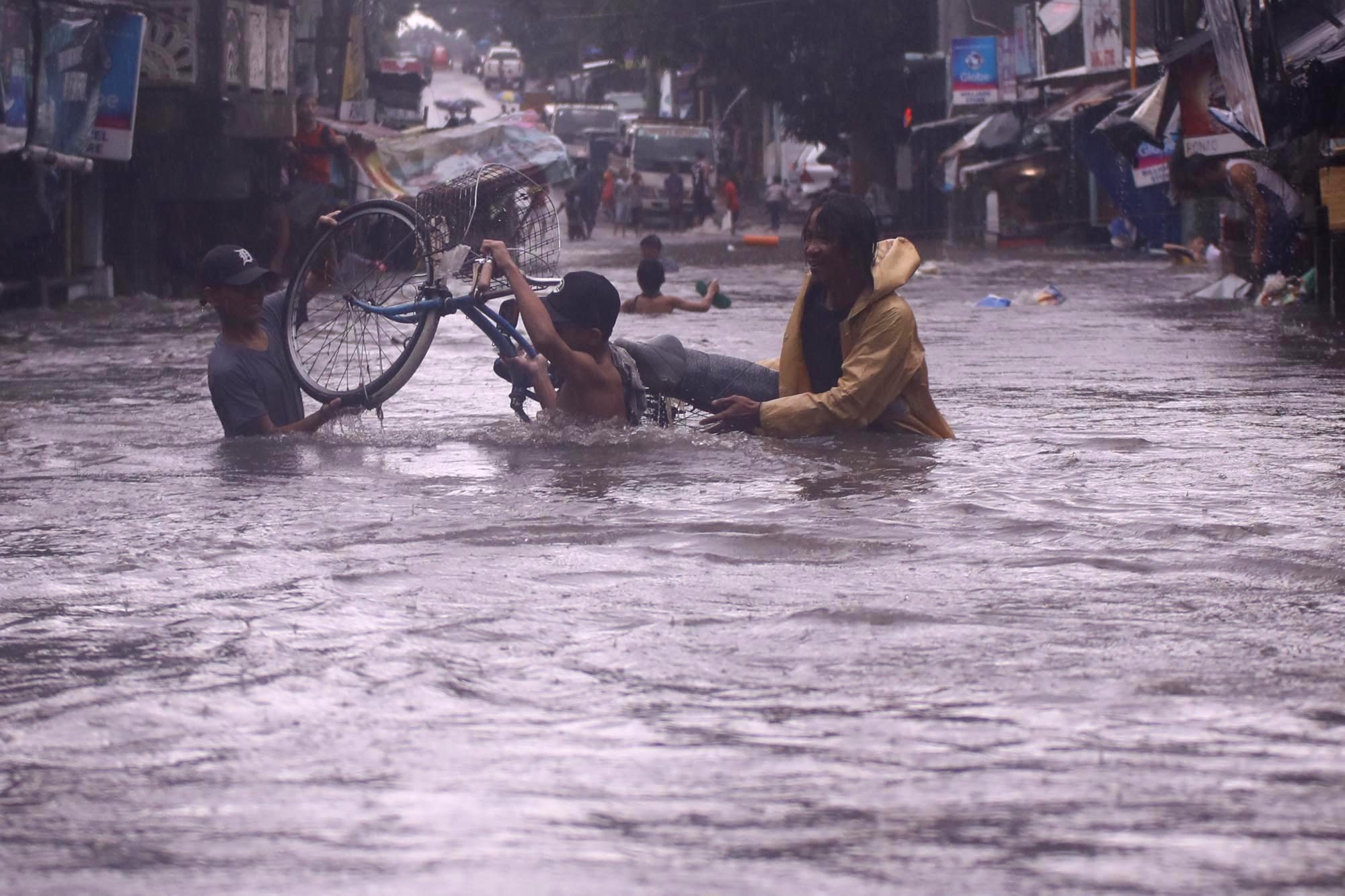SUMMARY
This is AI generated summarization, which may have errors. For context, always refer to the full article.

Editor’s Note: House committee on appropriations chairperson Karlo Nograles earlier said there would be no funds for 125,000 projects. His staff has sent a correction to media, clarifying that the figure should be 125.
MANILA, Philippines (UPDATED) – House committee on appropriations chairperson Karlo Nograles said there would be no funds to construct some 125 flood mitigation projects should the government push through with the proposed P3.757-trillion budget for 2019.
Nograles told this to reporters on Monday, August 13, as thousands of Filipinos remain in evacuation centers due to heavy rain and flooding brought by the southwest monsoon or hanging habagat over the weekend. (READ: Additional P12.5 M in aid given to monsoon victims)
The Davao City 1st District representative said the Department of Public Works and Highways (DPWH) is only aiming to build 1,811 flood mitigation structures and drainage systems in 2019 compared to its goal of 1,936 this year.
This is because the cash-based budgeting system being proposed for the 2019 budget reduced the DPWH’s proposed budget to P555.7 billion, about P93 billion less than the 2018 budget.
The DPWH’s operations budget to “protect lives and properties against major floods” was reduced from P122.742 billion in 2018 to P101.910 billion in 2019.
A cash-based budgeting system means that agencies have to spend their funds and implement their projects within the fiscal year.
Implementing government agencies are obliged to complete their project contracts by the end of 2019 regardless of obstacles like natural calamities, which may cause delays. Projects whose completion a government agency cannot guarantee will be removed from the proposed budget.
An extended payment period of 3 months after the fiscal year will be implemented to give more time for government agencies to make their payments.
They may also apply for a multi-year obligation authority, a document issued either for locally-funded or foreign-assisted projects implemented by government agencies, to authorize the latter to enter into multi-year contracts for the full project cost.
On August 9, Public Works Secretary Mark Villar already admitted to lawmakers that the cash-based budgeting system is “more challenging” to implement, but he vowed to “do our best to adjust to it.”
Aside from flood mitigation projects, education and health services stand to suffer huge cuts should the cash-based budgeting system push through next year.
Lawmakers now want the Department of Budget and Management to revert to an obligations-based budgeting system for 2019. – Rappler.com
Add a comment
How does this make you feel?
There are no comments yet. Add your comment to start the conversation.